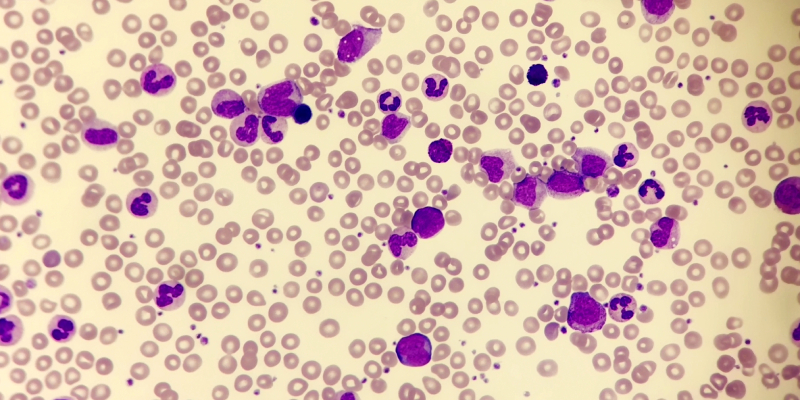
Olverembatinib is safe and yields promising antileukemic activity in patients with heavily pretreated, refractory chronic myeloid leukemia (CML) and Philadelphia chromosome–positive acute lymphoblastic leukemia (Ph+ ALL), according to a recent study.
The multicenter, randomized, open-label, phase Ib/II trial was led by Elias Jabbour, MD, of the University of Texas MD Anderson Cancer Center, and presented at the Twelfth Annual Meeting of the Society of Hematologic Oncology in Houston, Texas. Dr. Jabbour and colleagues evaluated the pharmacokinetics, safety, efficacy, and recommended phase III dose of the novel, potent, third-generation tyrosine kinase inhibitor (TKI).
Eighty patients, including 62 with chronic phase CML, were included in the study. Forty-six patients had received prior ponatinib, and 25 had received prior asciminib. Patients were stratified by T315I mutational status and randomly assigned to receive oral olverembatinib at 30, 40, or 50 mg every other day in 28-day cycles.
The pharmacokinetic profile of olverembatinib was compatible with alternate-day dosing, the authors noted.
Seventy-two (90%) patients experienced treatment-emergent adverse events (TEAEs), with 64 (80%) having at least one grade ≥3 TEAE and 31 (38.8%) having at least one serious TEAE. Elevated blood creatine phosphokinase was reported in 38.8% of patients, and thrombocytopenia was reported in 28.8%.
Thirty-one of 51 evaluable patients (60.8%) achieved complete cytogenetic response (CCyR), and 25 of 59 evaluable patients (42.4%) achieved major molecular response (MMR). In patients who had received prior ponatinib, the CCyR rate was 57.7% and the MMR rate was 36.7%. In those who had received prior ponatinib and asciminib, the CCyR rate was 42.9% and MMR rate was 27.3%. Four of eight patients (50%) with asciminib resistance achieved CcyR, and four of 12 (33.3%) achieved MMR. The recommended phase III dose was established as 30 mg every other day in patients without a T315I mutation and 40 mg every other day in those with a T315I mutation.
“Olverembatinib was well tolerated and showed strong antileukemic activity in patients with heavily pretreated [chronic phase] CML, including those with ponatinib and/or asciminib failure, irrespective of T315I mutation status, Dr. Jabbour and colleagues concluded. “Olverembatinib may provide a valuable new treatment option for patients after failure of ≥2 TKIs.”
Reference
Jabbour E, Oehler VG, Koller PB, et al. Olverembatinib (HQP1351) overcomes ponatinib and/or asciminib resistance in patients with heavily pretreated/ refractory chronic myeloid leukemia (CML) and Philadelphia chromosome–positive acute lymphoblastic leukemia (Ph+ ALL). Abstract #CML-400. Presented at the Twelfth Annual Meeting of the Society of Hematologic Oncology; Sept. 4-7, 2024; Houston, Texas.






 © 2025 Mashup Media, LLC, a Formedics Property. All Rights Reserved.
© 2025 Mashup Media, LLC, a Formedics Property. All Rights Reserved.